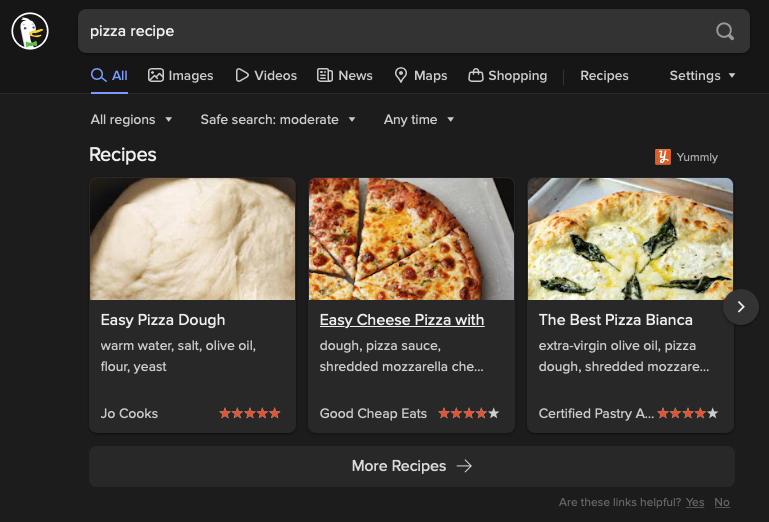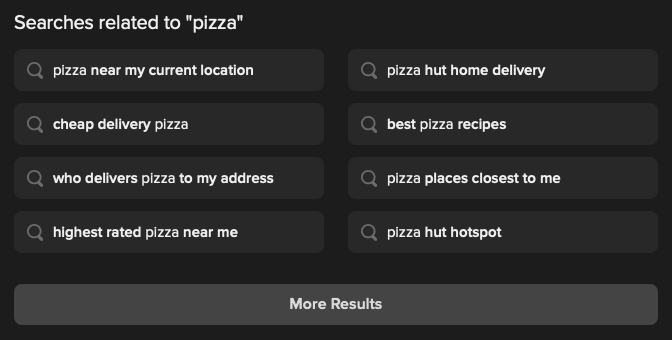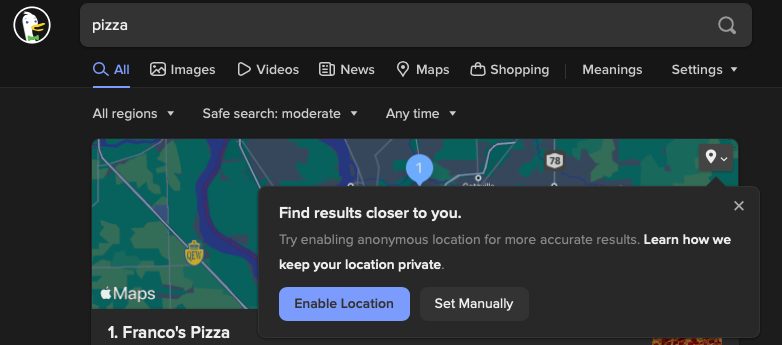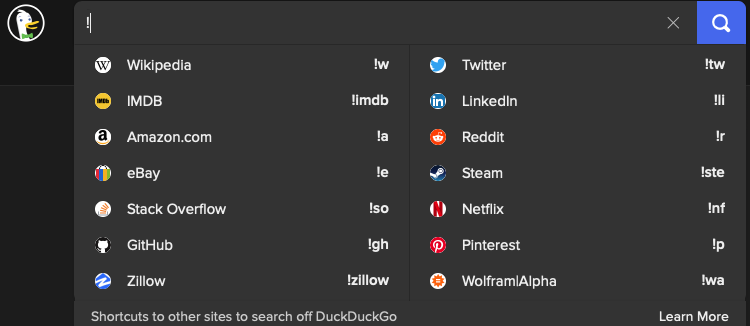How Does Duck Duck Go Work
Most have heard the expression “The Internet never forgets” whether its printed on a teeshirt, or said threateningly by your company IT department… oh the stories they must have. With the increase of global privacy protections instituted such as GDPR and CCPA, the sobering reality of increased state surveillance and countless security breaches, concern over our individual privacy and the desire to stay autonomous while browsing has changed the mindset of how we search.
So where does one even begin to unravel the web of our previous browsing habits?
The best place to start is with your browser itself. As most of us know Google tracks your online browsing through saved searches, ads that track your shopping habits, and every YouTube video you watch but many don’t realize that Google has admitted to scanning your Gmail messages to compile a list of your purchases, and they even track your location even if you turn off location services. This means that they have the ability to monitor where you travel, how long you’ve stayed, and your route even if you never open Google Maps. Its this same level of deep digging Google does when its assistant devices remind you when your bill is due, your flight is delayed, or when that shirt you ordered is arriving to your doorstep. Even in incognito mode, Google can still track your wherabouts on the interwebs.
NOw that I’ve properly freaked even myself out lets unravel this web. Having flown relatively under the radar since its inception in 2009 Duck Duck Go has been increasingly gaining more market share in our current climate as “the search engine that doesn’t track you.” In addition, they have expanded to offer a browser for iOS and Android with an extention for Chrome with plans to expand to a desktop version in 2022 wich they say will be significantly faster than Google Chrome.
as of January 2021 have surpassed 100 million search queries for the first time and while that may be small compared to Google’s average 5 billion a day, Duck Duck Go doesn’t need to be the biggest in market share to make an impact.
So how does it protect my privacy?
Searches made via Duck Duck Go automatically conect you to encrypted versions of websites making it harder for anyone else to see what you are searching for online. The wsbite itself knows you visited but the search terms for how you found the site remain hidden and your browsing data and IP addresses is not stored within their syste, meaning that no personal information can be identified about you or your browsing habits.
How does the browser work?
DDG is very similar to layout and ease of use, in fact, after the initial setup you might even forget you aren’t using Google –
SERPs – The results pages look very similar to google with the standard 10 organic searches per page and the option for continuous scrolling at the bottom. Vertical Searches – In my search for “pizza” I also found recent news articles section featured within the organic results. When changing my search to “pizza recipe” I am served a vertical of various recipes. Additional vertical searches remain the same as google with Images, videos and shopping.


In addition, there is also a “searches related to” box at the bottom of the results page

Ads – Yes, DDG does offer ads (in additon to keyworkds, its how they make money) however, their ads work entirely different from Google. WHen you type in “pizza” you are served pizza related ads, when you type in “cars” you are served car related ads, DDG doesn’t need to know your entire search history to serve you relevant ads, they take this information from your active search and forget about it as soon as you search for something different. You won’t be served more than 2 or 3 ads per search depending on the keyword search query, competition and volume. They are also clearly marked so you won’t be misled.

Knowledge Panel – you will also find relevant information on the right hand side of your browser for your search. The majority of this information is gathered from open source platforms like wikipedia and other search platforms such as Bing, and Yandex. While not as robust as Google when displaying important busines information, the knowlege panel is ever expanding pulling the majority of its information such as phone numbers, business hours and reviews from Yelp and Tripadvisor.
Featured Snippets/Instant Answers – Instant Answers in DDG answer (pun intended) to Google’s Featured Snippets and pulls from over 100 sources to provide you a quick answer to your question. All answers are open source and can be deposited within their GitHub repository. Within Instant Answers is also the ability to check the status of a flight and create a unique password.
Location/Maps – DDG draws all map information exclusively from Apple Maps and offers you the option to use your search location directly in the browser instead of defaulting to your location.

DDG explains a little bit more how the location works via their blog:
When you hit the search button, your computer sends your search request to us. In that request, your computer embeds additional information. For example, if you opt-in to location sharing for a site, this information includes your approximate location. And even if you don’t, your request includes your IP address, and an approximate location can be inferred from it, though it isn’t always accurate.
Bangs/search commands – DDG trademark Bangs, also known as !BangSyntax is a website search command that allows you to search say, Amazon for a specific pair of hiking boots directly from the Duck Duck Go search Engine. All you hve to do is type an exclamation point into the search bar than you can either type in amazon or click on the link in the dropdown for Amazon. Next type hiking shoes and you will be transported to your results within amazon.

How will this affect SEO?
Crawler bot – Duck Duck Go states that it gathers its information from over 400 unique sources as well as through its own crawler, Duck Duck Bot which constantly helps provide you with the most up to date results based on your searches. We don’t know much, yet, about how the bot works however, we do know that it is very respectful and adheres to all stated bot rules. If you are optimized for Google Bots than chances are your site will do very well in DuckDuckGo as well.
Outside of the traditional SEO methods, here are few ways to ensure your visibility:
Attract quality links – Well, Duh, this applies to pretty much every site but because DuckDuckGo specifically mentioned it as a visibility factor I included it.
Anticipate Searches – Because of its emphasis on privacy and the option to opt out of location based searches, really getting to the heart of keyword research and specifically long-tail keywords to understand your visitors.
Optimize for Bing – Yep, Bing! This means utilizing Bing Analytics and setting up Bing Webmaster Tools. Utilizing these tools per DDG’s own admission will allow you to better allow you to understand user intent in regards to search and set up keywords appropriately. As a plus, Bing is the second most used search engine behind Google so it won’t hurt to get a two for one deal.

Claim and Update Apple Maps – DDG serves its users all location and map information through Apple Maps. If you haven’t yet claimed your business on Apple you can do so here – https://register.apple.com/placesonmaps/ The claim process is very similar to Google’s as you will need to provide all appropriate business information and than verify your business location.
To learn more about what Duck Duck Go is up to I encourage you to browse through their blog.